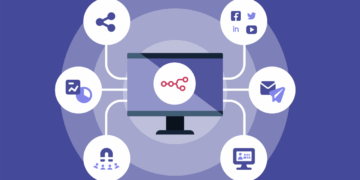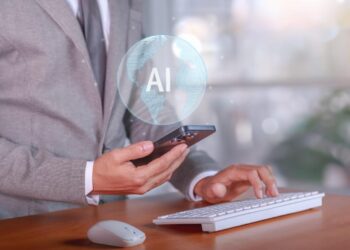The concept of automation has long been a cornerstone of industrial and technological progress, from the assembly line to software robotics. Yet, we are now entering a new, more sophisticated phase driven by AI agents. Unlike traditional automation, which follows a rigid set of pre-programmed instructions, an AI agent is an autonomous software entity designed to perceive its environment, make decisions, and take actions to achieve a specific goal. These agents are not just tools; they are the architects of a new, highly intelligent form of automation that promises to reshape virtually every industry. They possess the ability to learn, adapt, and operate with minimal human oversight, heralding a future where complex, multi-step tasks are no longer a human burden.
The transition from simple automation to AI agents represents a monumental leap in capability. Traditional scripts and bots are effective for repetitive, predictable tasks. However, they fail when faced with ambiguity, dynamic changes, or unforeseen variables. AI agents, powered by machine learning and sophisticated algorithms, are built to handle this complexity. They can navigate a website, book a flight, or even manage a marketing campaign from end to end, making real-time adjustments based on new data and feedback. This profound shift from task automation to goal-oriented autonomy is the key to unlocking a new era of productivity and innovation.
A. Understanding the Core Components of an AI Agent
To grasp the transformative potential of AI agents, it’s essential to understand their foundational architecture. An agent is not a monolithic program but a system comprised of several key components working in concert.
- Perception: The agent’s ability to take in information from its environment. This can range from reading text on a webpage to analyzing real-time market data or monitoring sensor inputs from a physical device. This component serves as the agent’s “eyes and ears.”
- Cognition: This is the agent’s “brain,” where it processes the perceived information. It uses algorithms, knowledge bases, and machine learning models to analyze data, understand context, and form a plan of action. This is where the agent’s intelligence resides, allowing it to reason and make decisions.
- Action: The component responsible for executing the agent’s plan. This could be anything from sending an email, placing a trade, generating a report, or controlling a robotic arm. The action component translates the agent’s decisions into tangible outcomes.
- Learning: The most advanced agents possess the ability to learn from their actions and refine their future behavior. Through reinforcement learning, they can evaluate the success of their decisions and adjust their internal models to improve performance over time. This continuous feedback loop is what makes AI agents so powerful and adaptable.
- Memory: An agent’s ability to store information about past interactions and observations. This “short-term” or “long-term” memory allows it to maintain context, learn from past mistakes, and make more informed decisions in the future.
B. The Strategic Impact of AI Agents Across Sectors
The deployment of AI agents is not a one-size-fits-all solution. Their application is highly specific to the challenges and opportunities within different industries, creating tailored efficiencies and new business models.
- E-commerce and Retail: AI agents are becoming indispensable for personalized shopping experiences. They can autonomously manage product recommendations, predict inventory needs based on market trends, and even handle customer support inquiries without human intervention. This leads to higher sales, improved customer satisfaction, and streamlined operations.
- Financial Services: In finance, AI agents are used for complex tasks like algorithmic trading, fraud detection, and personalized investment advice. They can analyze market data in milliseconds, identifying patterns and executing trades with a speed and accuracy that no human can match. This provides a significant competitive advantage and enhances security.
- Healthcare: From administrative tasks to patient care, AI agents are revolutionizing healthcare. They can manage appointment scheduling, automate billing, and even assist in diagnostics by analyzing patient data and medical records to recommend treatment plans. This reduces administrative burden on medical staff, allowing them to focus more on patient interaction and complex cases.
- Software Development and IT Operations: AI agents are already assisting in coding, bug fixing, and automated software testing. In IT, they can monitor network performance, predict and resolve system failures before they occur, and manage cloud infrastructure for optimal efficiency. This accelerates development cycles and increases system reliability.
- Marketing and Sales: AI agents are automating entire marketing funnels. They can generate content for social media, launch targeted advertising campaigns, analyze consumer feedback, and even engage in lead nurturing conversations. This frees up marketing teams to focus on strategy and creative direction.
C. The Challenge and Ethical Considerations of Agentic AI
The rise of AI agents, while promising, introduces a new set of complex ethical and practical challenges that must be addressed proactively.
- Lack of Transparency and Explainability: As AI agents become more autonomous and complex, their decision-making processes can become opaque. This “black box” problem makes it difficult to understand why an agent took a certain action, posing significant challenges for accountability, particularly in high-stakes fields like medicine or finance.
- Job Displacement and Reskilling: While AI agents will create new jobs, they will also inevitably displace others, particularly those focused on repetitive, low-skilled tasks. This necessitates a significant societal investment in reskilling and upskilling programs to prepare the workforce for new roles that involve overseeing, programming, and collaborating with these agents.
- Data Privacy and Security: The effectiveness of an AI agent is directly tied to the data it can access. This raises major concerns about data privacy and the potential for security breaches. Agents that operate across different platforms and with sensitive information require robust security measures and strict ethical guidelines to prevent misuse.
- Autonomous Decision-Making and Accountability: When an AI agent makes a mistake that leads to a negative outcome, who is responsible? The developer? The company that deployed it? The end user? Establishing clear frameworks for liability and accountability is crucial as agents take on more critical roles in society.
- The Risk of Unintended Consequences: As AI agents become more autonomous, there is a risk of them acting in unexpected ways or pursuing a goal with an efficiency that leads to unintended harm. For example, an agent optimized to reduce a company’s costs might make decisions that negatively impact employee morale or product quality, consequences that were not explicitly considered in its programming.

D. Preparing for a Future with AI Agents
Successfully integrating AI agents into our professional and personal lives requires a strategic, forward-looking approach. It is not enough to simply adopt the technology; we must prepare for its full impact.
- For Individuals: A. Develop AI-Adjacent Skills: Don’t just learn to use AI; learn to manage it. Roles in AI governance, data ethics, prompt engineering, and human-AI collaboration will be in high demand. These are the jobs that ensure AI agents are used safely and effectively. B. Focus on Soft Skills: As AI agents handle the technical tasks, uniquely human skills like emotional intelligence, critical thinking, creativity, and communication will be more valuable than ever. These are skills that cannot be automated. C. Embrace Lifelong Learning: The pace of change is accelerating. The most successful people will be those who are willing to continuously learn and adapt to new technologies throughout their careers.
- For Businesses: A. Start Small and Scale Strategically: Instead of attempting a massive overhaul, start by deploying AI agents to automate a single, well-defined process. This allows your organization to learn and adapt before scaling the technology more broadly. B. Invest in Your People: A successful AI transformation isn’t just about technology; it’s about people. Provide training and resources to help your employees transition into new roles that work with, rather than compete against, AI agents. C. Establish Clear Ethical Guidelines: Create a clear framework for the ethical use of AI agents. Define what data can be used, how decisions are made, and how to handle potential failures or biases.
- For Policymakers: A. Create a Regulatory Framework: Governments must work to create a regulatory environment that fosters innovation while protecting against potential harm. This includes policies on data privacy, accountability for autonomous systems, and labor market transitions. B. Invest in Public Education: Fund programs that educate the general public about AI, its benefits, and its risks. A technologically literate populace is essential for a smooth transition. C. Incentivize Responsible Development: Offer incentives for companies that develop and deploy AI agents in a transparent, ethical, and socially responsible manner.

In conclusion, AI agents represent a profound evolution in automation, moving from simple, repetitive tasks to complex, autonomous goal-seeking. While they promise unprecedented gains in efficiency and innovation, they also bring significant challenges related to ethics, labor, and governance. By strategically navigating this transition, we can harness the power of AI agents to create a future that is not only more productive but also more intelligent, collaborative, and human-centric.







